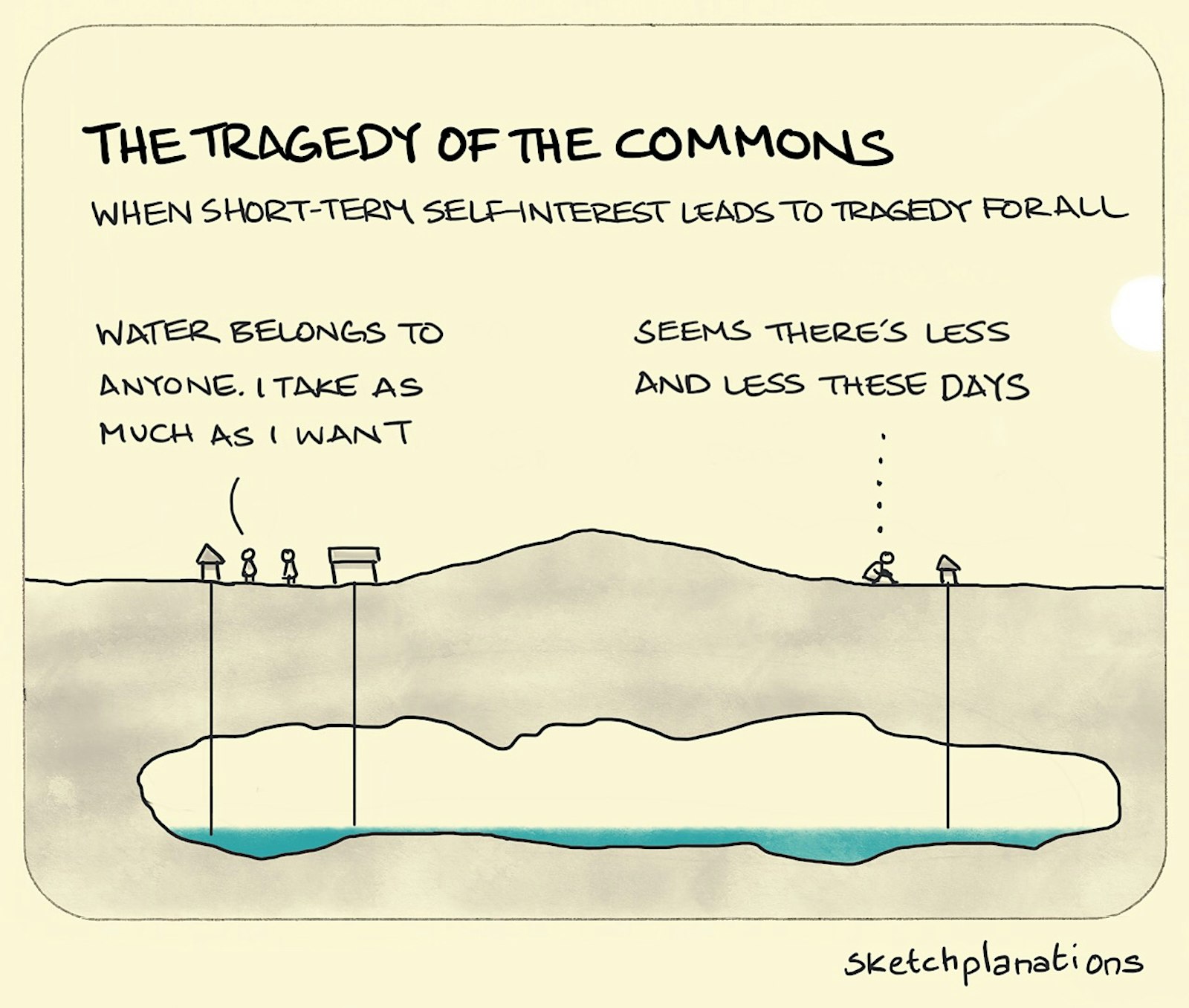
The tragedy of the commons
The tragedy of the commons is the all too common outcome of individuals making use of a shared resource and one of the true challenges of our times. The original scenario referred to commons land that soon becomes overgrazed as each individual tries to maximise their value from the share resource. The tragedy is that the overgrazed land is then ruined for all.
We see the effect, perhaps most perniciously, with invisible or hidden shared resources such as taking water from underground aquifers for irrigation, or overfishing of fish stocks in the sea. The same effect is at work with problems such as littering, or washing plastics into the sea, or polluting the atmosphere — while it’s easier for any individual to take another fish, leave their litter on the ground, let pollution run into a river or the sea, or not worry about air pollution, the tragedy is it can have the effect of ruining them for all of us.
When shared resources are moderated or governed fish stocks can be managed to recover, water supplies to replenish or pollution to be naturally treated.
For more, check out this 5 min video on the tragedy of the commons by TED-Ed.
